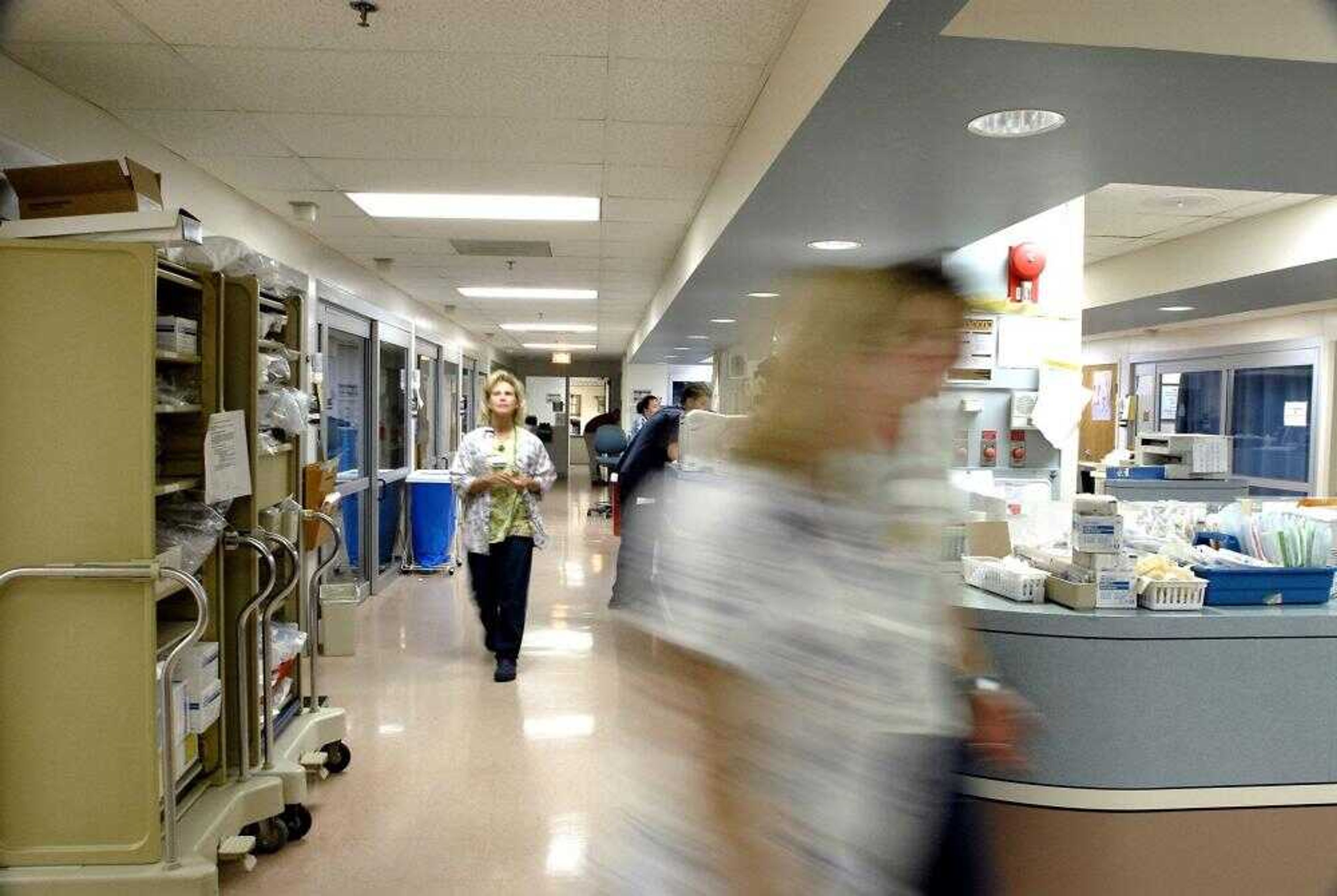Weekend waiting
Heart attack patients have a slightly higher risk of death if they go to the hospital on the weekend, when they are more likely to miss or wait longer for crucial treatments, one of the largest studies of the issue finds. But according to emergency room directors at Cape Girardeau's two major hospitals, heart attack patients may have a better chance of survival if they visit the hospital during the weekends because of increased staffing...
Heart attack patients have a slightly higher risk of death if they go to the hospital on the weekend, when they are more likely to miss or wait longer for crucial treatments, one of the largest studies of the issue finds.
But according to emergency room directors at Cape Girardeau's two major hospitals, heart attack patients may have a better chance of survival if they visit the hospital during the weekends because of increased staffing.
Marcia Abernathy, director of emergency services at Saint Francis Medical Center, said the hospital has more staff on duty during the weekends and holidays because doctors offices are closed.
The same is true at Southeast Missouri Hospital, where the number of staff is increased throughout the day during the weekends, said Linda Brown, emergency department director.
The study indicated that weekend patients waited longer for angioplasty and other procedures, likely because of reduced staffing.
Although the increased risk of death is small, roughly 5 percent higher in the month after an attack occurs, it can mean potentially thousands more deaths in the United States annually.
Even so, doctors say you shouldn't avoid a weekend hospital visit if you think you are having a heart attack or stroke. A delay of even an hour or two raises chances of death or serious heart or brain damage.
"No one wants to spend time in the emergency room because they think it will be busy," Brown said. "But if someone comes in here with any chest pain ailment, those folks are moved through the system very quickly."
Abernathy said 90 percent of patients seen in emergency waiting rooms are not actual emergencies.
"When those other 10 percent of patients with true emergencies come in, they are brought right back," she said. "It's worse come, first served in ERs."
The new study of nearly a quarter-million first-time heart attack patients in New Jersey reflects what smaller previous studies have shown about weekend medical care.
In the latest study, published in today's New England Journal of Medicine, researchers at Robert Wood Johnson Medical School in Piscataway, N.J., used a huge statewide database. They tracked 231,164 patients admitted for a first heart attack from 1987 to 2002. They looked at trends over four-year periods, partly because of major advances in heart attack treatment over that time, including new clot-busting drugs, artery-clearing angioplasty and tiny devices called stents that prop open cleared-out arteries.
In the most recent four-year period, when care was much the same as today, patients admitted on a weekend were about 7.5 percent more likely to die within a month than those admitted on a weekday. After adjusting for factors such as age and other medical problems, the death rate was 5 percent higher for those admitted on weekends, said the lead researcher, medical student William J. Kostis.
He said the difference in outcomes was obvious by the day after admission and amounted to 1 in 100 patients each year.
"We lose this patient early. It's after the first day or two," Kostis said, adding that the weekend patients were at least one-third less likely to get angioplasty or bypass surgery promptly, compared with weekdays. "It seems very likely to be a factor."
At many hospitals, the catheterization lab where those procedures are performed is closed or has limited service hours on weekends.
But both Saint Francis Medical Center and Southeast Missouri Hospital have staff on call during the weekends for the cardiac catheterization labs.
Danny Conrad is the nurse manager of the cardiac catheterization lab at Southeast Missouri Hospital.
"Being in a smaller city, I don't think we see a problem with weekend care," he said. "In a lot of cases during the weekends you're not as tied up, and you can get to the patient even faster."
Dr. Harlan Krumholz, a Yale University School of Medicine cardiologist, said differences in staffing levels and communication may play a role in the different death rates. His research team in 2005 found that heart attack sufferers waited 20 to 30 minutes longer for angioplasty on weekends or after hours.
Both Saint Francis and Southeast cardic catheterization labs weekend staff have response time limits of 20 minutes, but Conrad said they typically arrive at the hospital even faster.
"I know both the emergency rooms here are very good at identifying heart attack symptoms, and you won't see any difference in care at either hospital on the weekends," he said.
Features editor Jennifer Freeze contributed to this report.
Connect with the Southeast Missourian Newsroom:
For corrections to this story or other insights for the editor, click here. To submit a letter to the editor, click here. To learn about the Southeast Missourian’s AI Policy, click here.









